Rome
I had been looking forward to our
visit to Rome. While I have been through Rome a number of times, I hadn't
ever stopped to have a look. And there is a lot to look at! As you
wander through Rome, you alternate between narrow alleys, lined with crumbling
stone-colored three and four story buildings, piazzas big and small each with
some interesting, usually ancient, central feature: a fountain, an obelisk, a
statue, and life threateningly busy many-laned roads.
The Coliseum
The coliseum was built by the emperor
Trajan for the entertainment of the masses in about 72 AD. As originally
built, there was not wodden floor, and no tunnels underneath. Originally,
the intent was to stage naval battles within the Coliseum as well as other
battles. It was once flooded for a 6 month period! The naval battles
proved to be a bad idea, afterwhich the labyrinth of tunnels was contructed and
capped with a wooden floor, which was spread with sand.
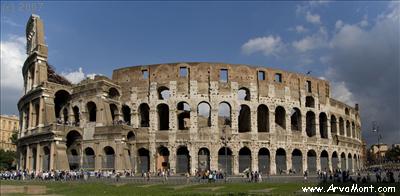 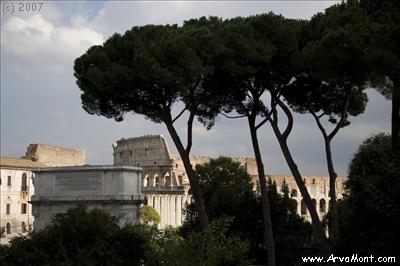
The Coliseum as seen from the Roman
Forum
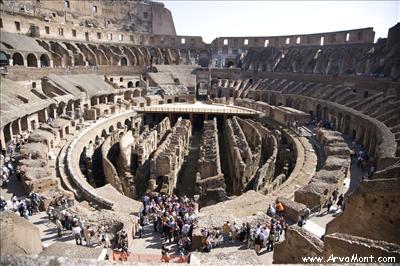 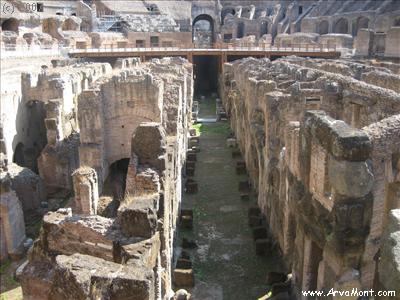 The labyrinth of tunnels
The labyrinth of tunnels
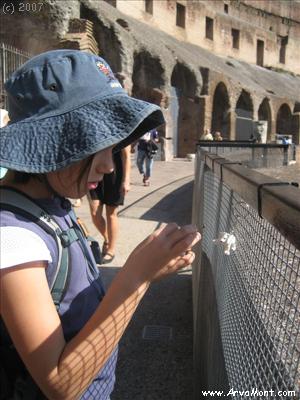 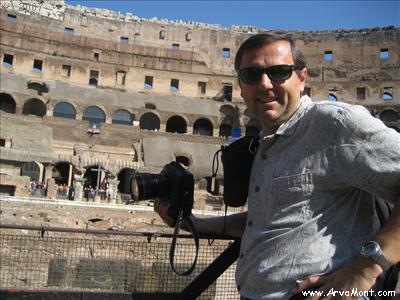 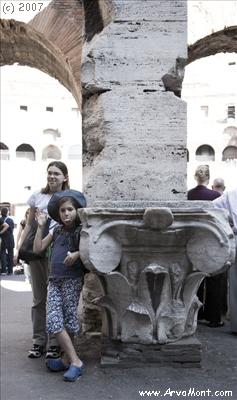
Anika was very impressed with the
sights...
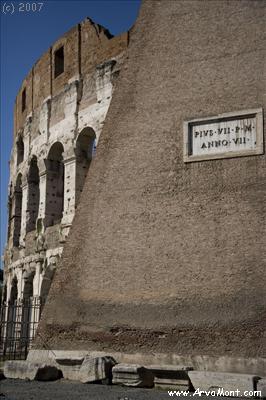 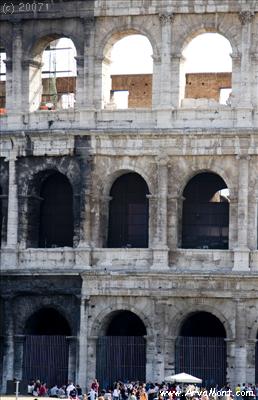 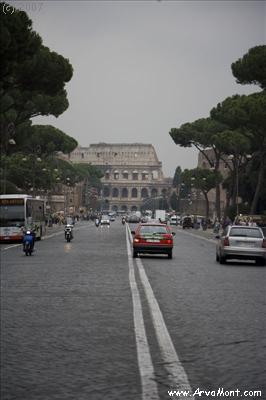 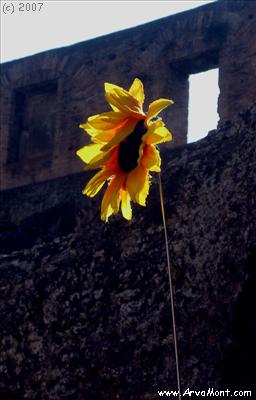
The Coliseum was repaired many times
over the course of its long life, and this time by Pope Pius VII!
Interestingly, each level of the Coliseum sports a different variety of
column. The lowest level are simple doric, the second level are ionic
and the top level are Corinthian! One of the things I found most
interesting about the Coliseum and actually Rome in general, is that all of
this history, all 2000 years worth is just sitting our there for all to see.
The Roman Forum
This was the center of Roman life in
the time of the great Roman Empire. Much of the ancient architecture was
pilfered in order to build grand palazzo and great churches. Thus, a good
imagination and some knowledge of history is required to appreciate the Forum.
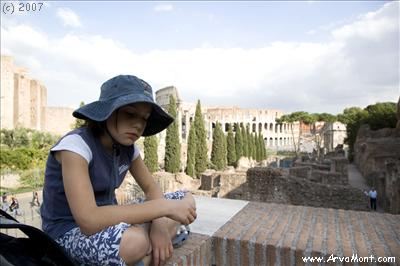 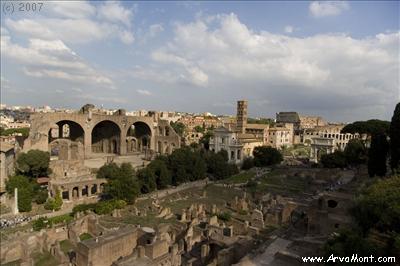 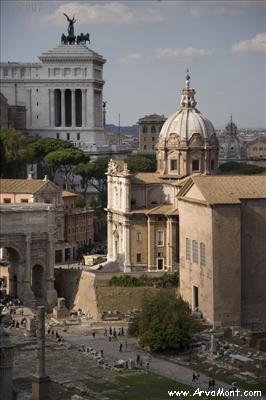
A little snooze was in order ...
The rebuilt senate
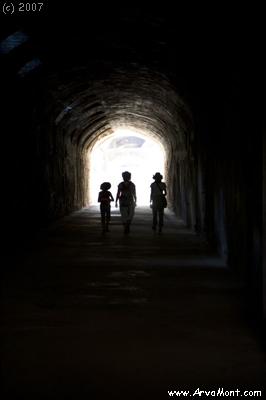 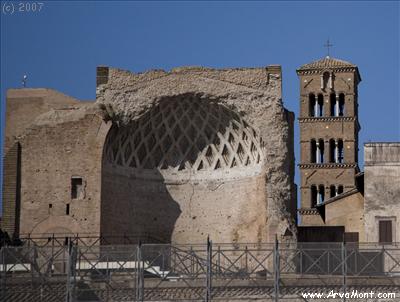 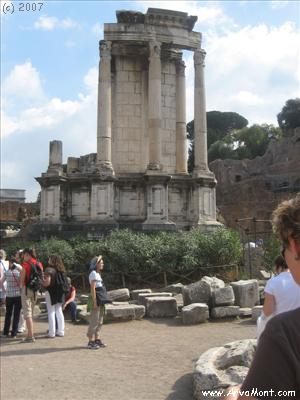
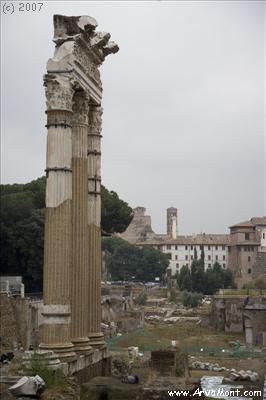 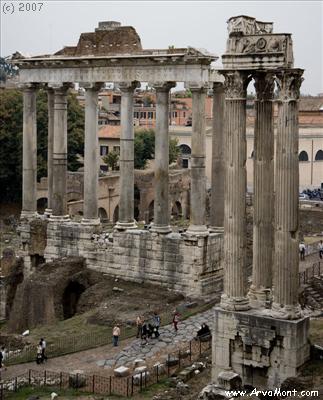
Capitoline Hill and the Piazza
del Campidoglio
The Capitoline Hill is at one end of
the Roman Forum, the end with senate building and the Rostrum. The Piazza
on the top of the hill was designed by Michelangelo
in 1536 at the behest of Pope Paul III. He did not design the buildings,
only the building facades. He also placed the statues and designed the
staircase.
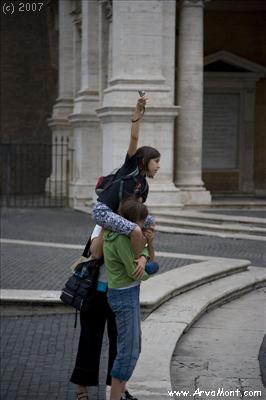
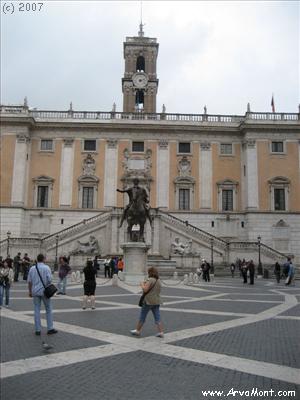
Anika works hard to get just the right
photo!
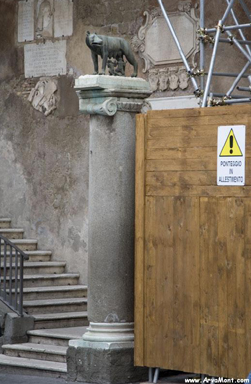
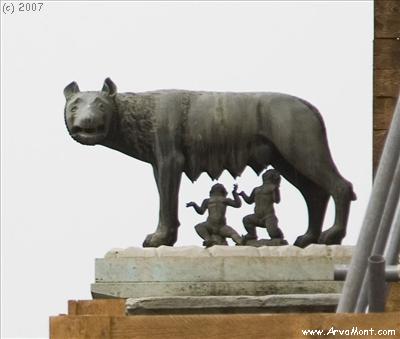
The famous statue of Remus and Romulus
and the she-wolf. This statue is very well hidden. It sits next to
the Piazza on a walkway that leads to an overlook of the Roman Forum. We
found it just by chance.
_______________________________________________________________________________
The Pantheon
The Pantheon was erected in 118 AD by
the emperor Hadrian, who was also famous for building Hadrian's Wall across
Britain. It was built as a temple to all gods. Within the huge dome
is a hole, which on the day of our visit was wet inside due to the rain!
The hole allows all of the bad demons to escape. Apparently, for more than
1000 years starting in the middle ages, this temple was a visible example of
what could no longer be done - no one could understand how such a large
dome could be supported.
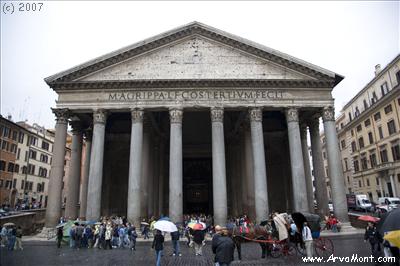
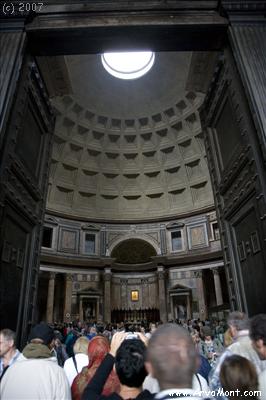
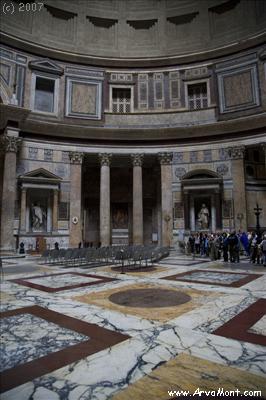
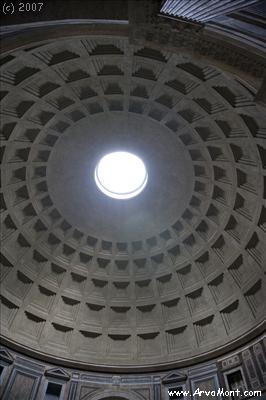
It is interesting to note that this
structure stands in glory, even today, when the rest of ancient Rome sits in
fallen decay just around the corner. The temple was taken over by the
Catholic church, and maintained. Imagine how much fun a visit to Rome
would be if all the buildings around the Roman Forum had been maintained!
Imagine how lavishly the patrician Romans lived two millennia ago! When
all we have to look at are a few marble blocks, it is easy to suppose that their
lifestyle was simplistic, when clearly nothing could be further from the truth.
The Spanish Steps
On the Piazza di Spagna sit the
Spanish Steps. This was the center of tourism in Rome in the 18th century,
and is still surrounded by tea rooms, hotels and the American Express office.
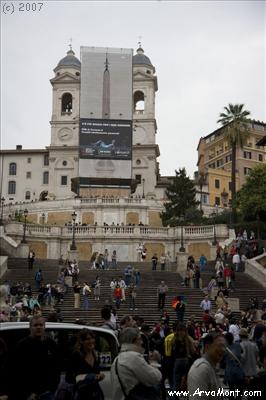
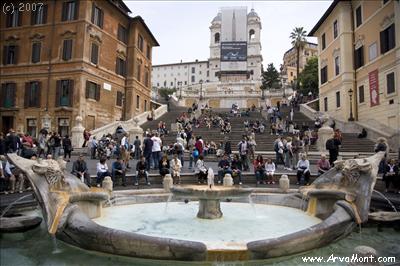
Yet another occurrence of the
"European History
Behind Scaffolding."
The Trevi Fountain
This amazing fountain is squished
into a piazza hemmed in on all sides. We approached from the back and were
astounded by the shear size and shape of the fountain! It was built in
1762, and portrays Neptune. Anika was struck by the fact that Romans
tended to feel the need to have fountains represent the water gods and water
entities.
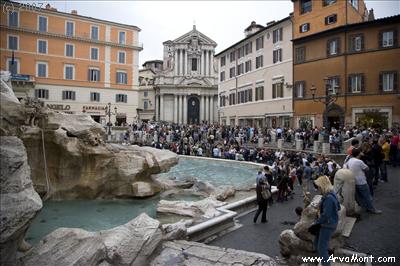
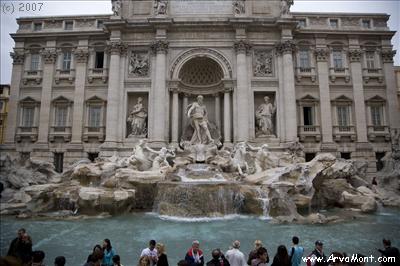
Legend holds that throwing a coin
into this fountain, right hand over left shoulder will ensure that the thrower
can return to Rome one day.
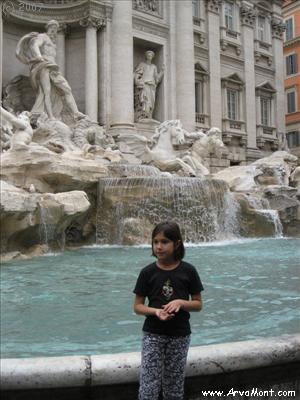
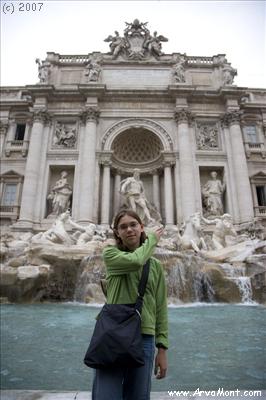
The Vatican Museums
IT takes patience to visit the
Vatican Museums. The day we went, the line was almost 2 hours long.
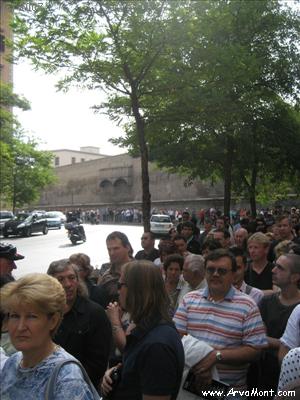 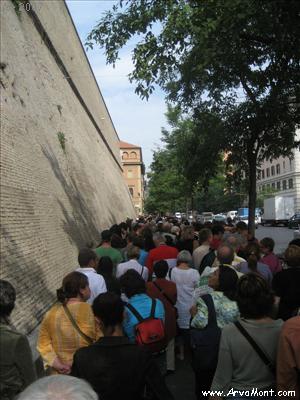 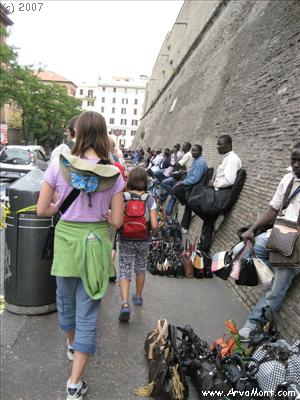
Behind us...
In front of us....
After we left the museum, there was no line, only vendors.
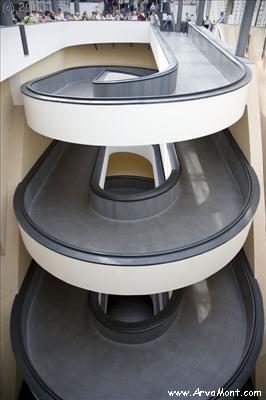
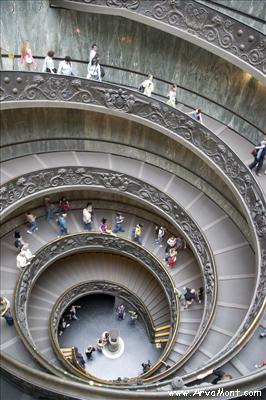 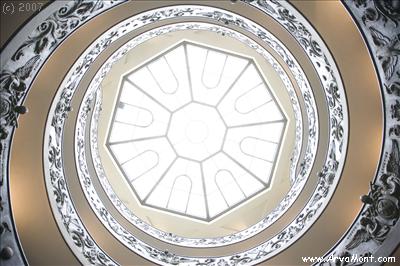
The handicapped entrance lookes a
little like a marble run! The double helix staircase now only used as
an exit originally allowed those entering and those leaving the museum to
each have one way paths!
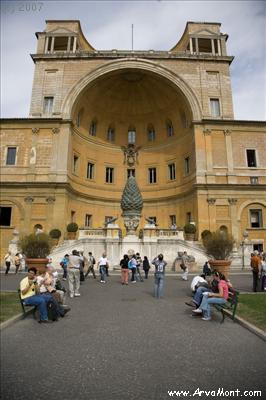 Modeled after the ruin in the Forum?
Modeled after the ruin in the Forum?
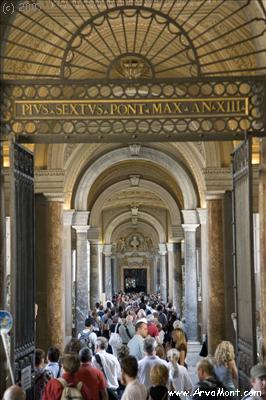 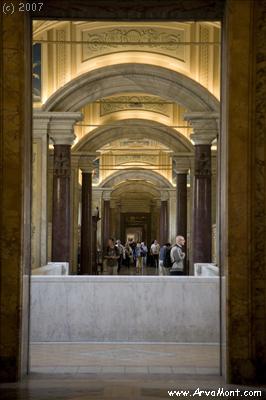
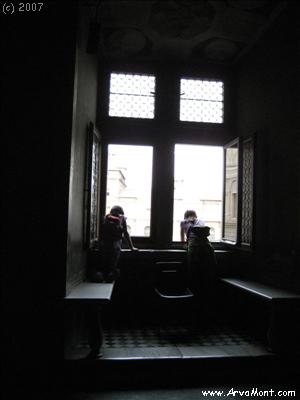 Sometimes the best view is the one outside!
Sometimes the best view is the one outside!
The Vatican Museum is really a
combination of museums. Here is a quick rundown of the parts we looked at:
The Sculpture Hall
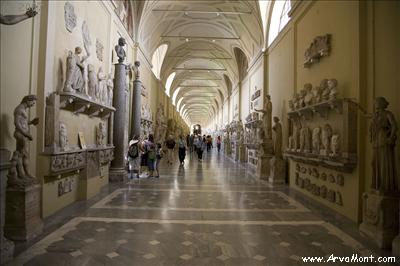
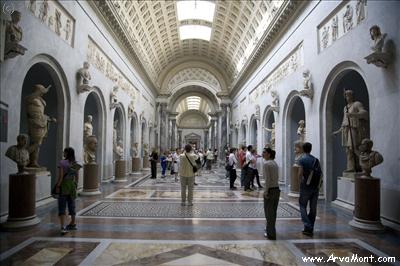
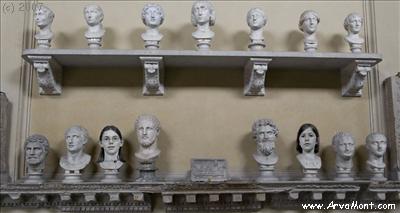
Some famous Romans. :-)
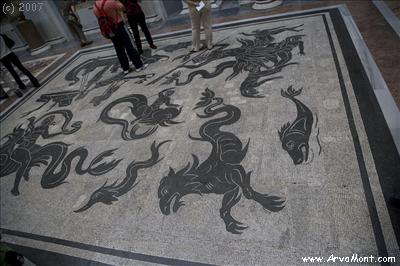
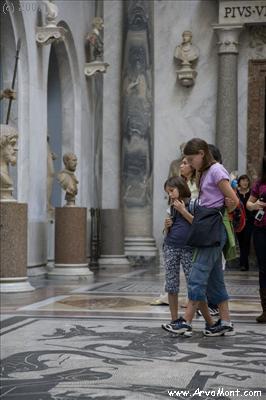
The Animal Statuary Room
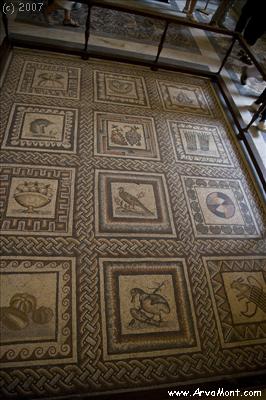
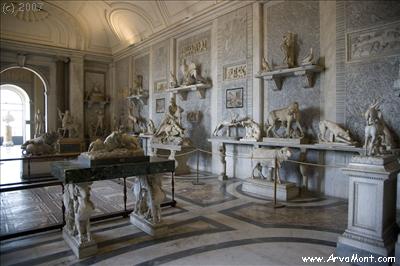
The Egyptian Room
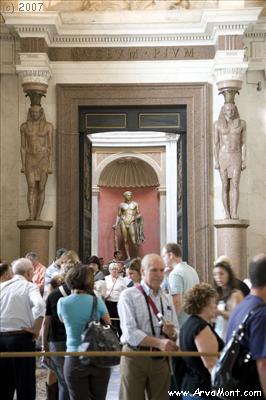
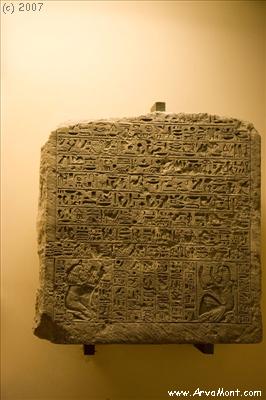
The Etruscan Rooms
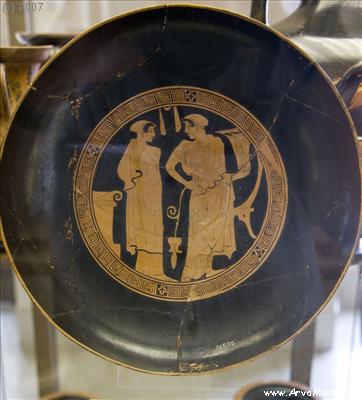
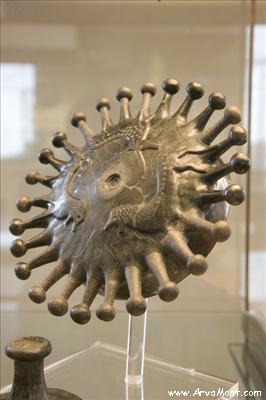
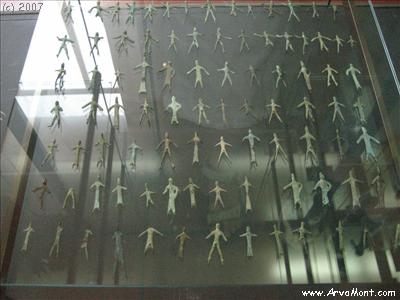
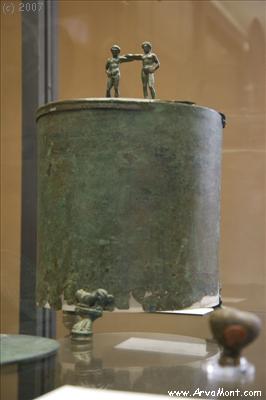
The Tapestry Room
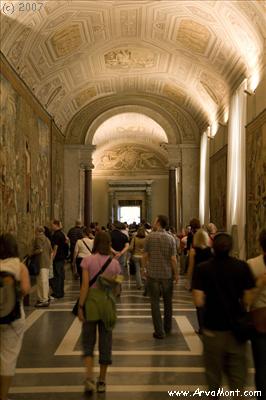
The Map Room
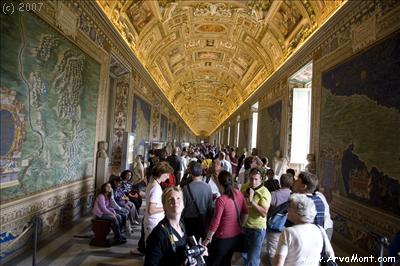
The Papal Residences
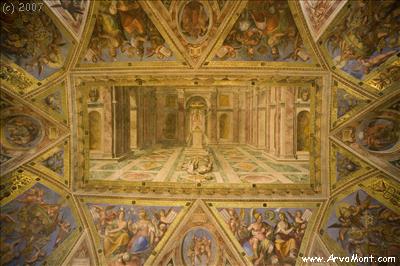
The Modern Art Gallery
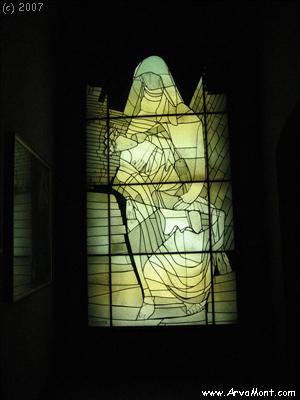
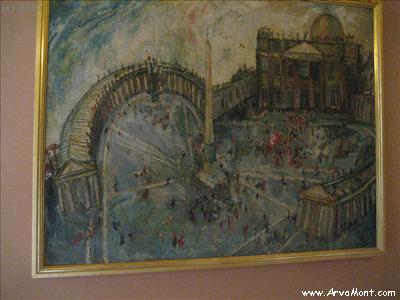
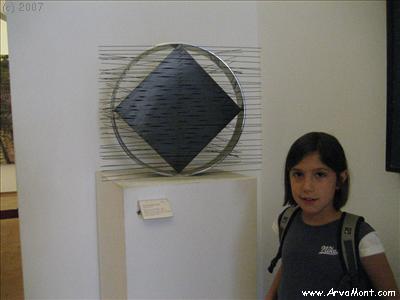
The Sistine Chapel
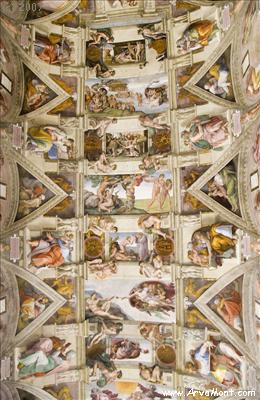
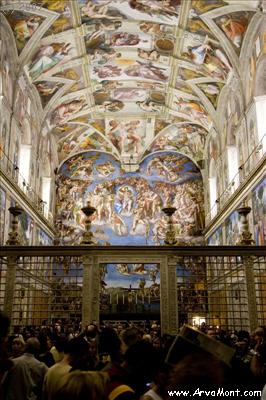
St. Peters Basilica
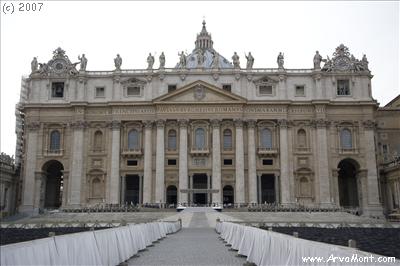 from the front
from the front
On the inside
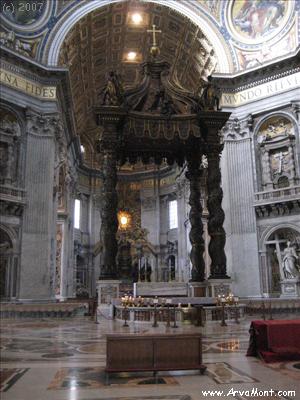 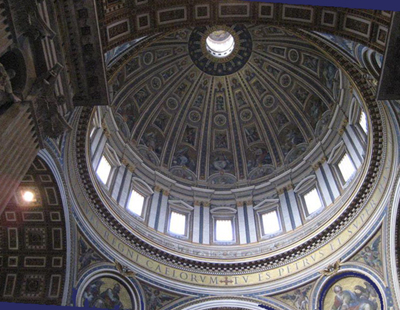
On the Outside
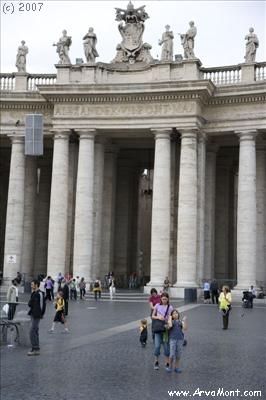 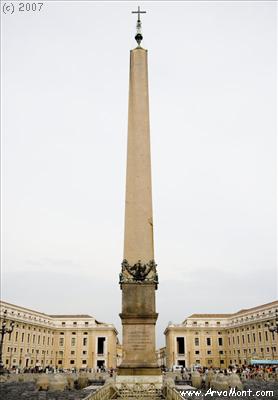 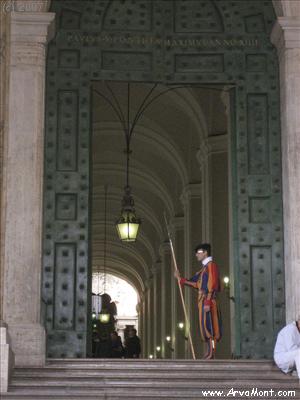 the Swiss guard
the Swiss guard
Climbing to the top of the dome
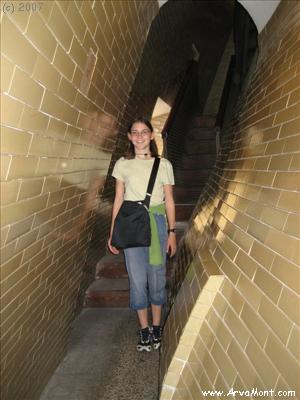 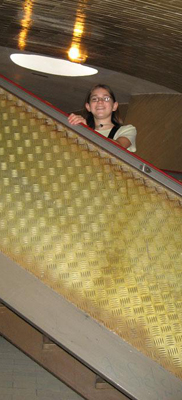 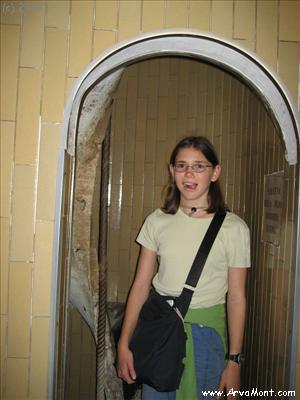 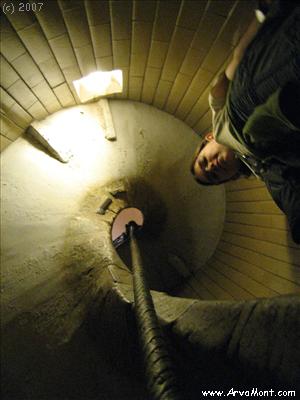
From the dome - inside
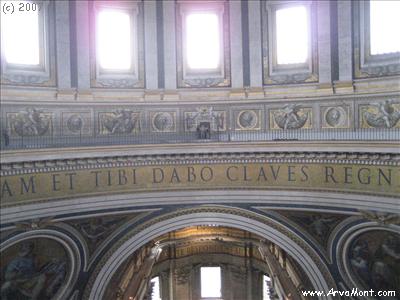 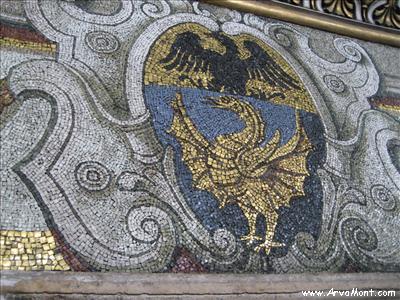
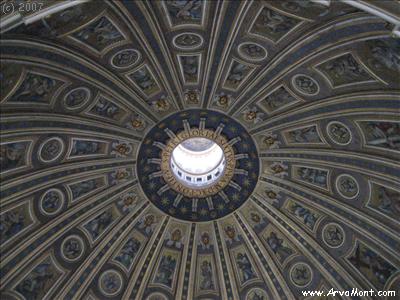 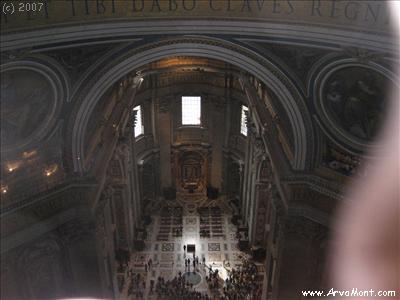
From the top
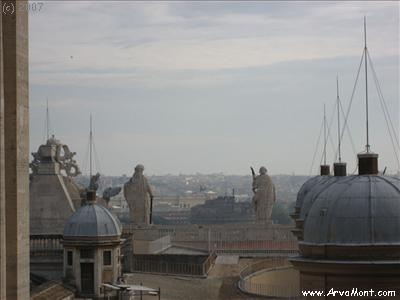 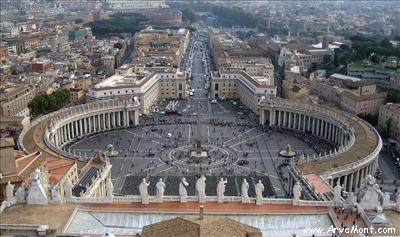
From Rome we went to
Florence for a few days.
|  Around
the World With the ArvaMonts
Around
the World With the ArvaMonts














































































